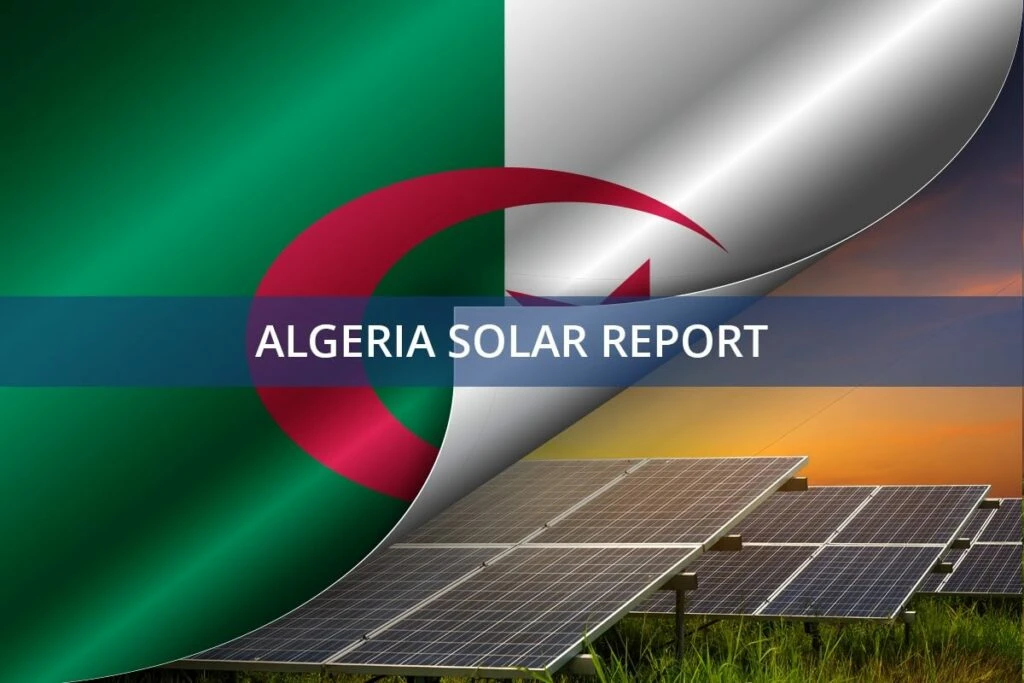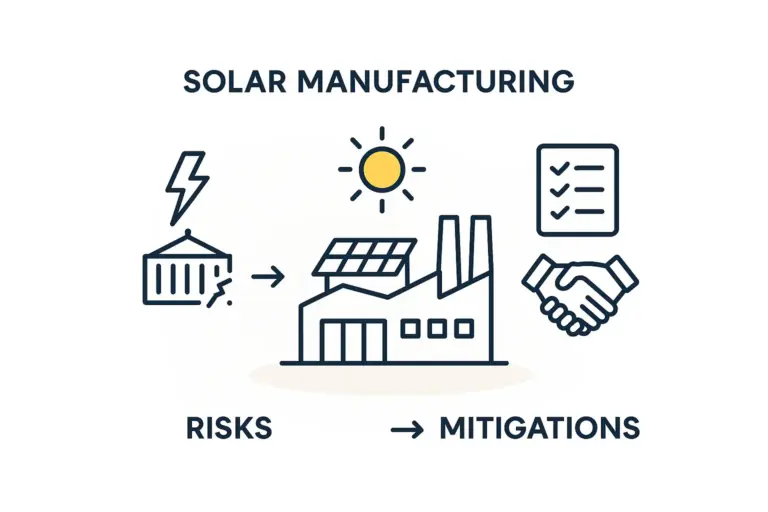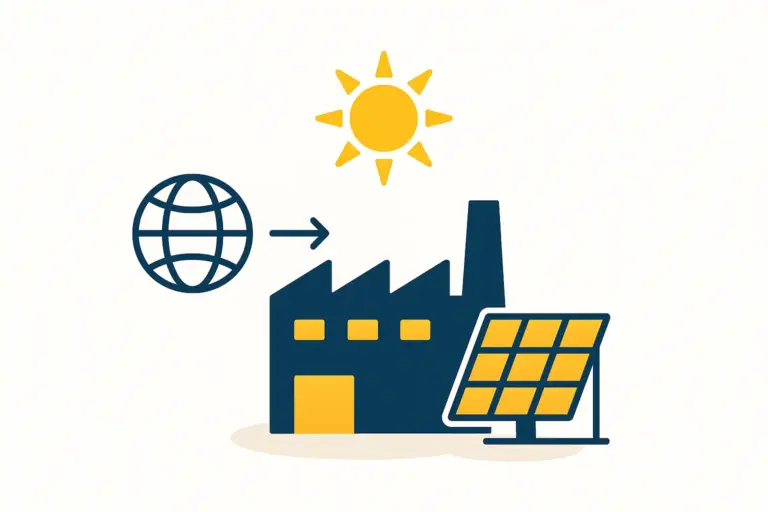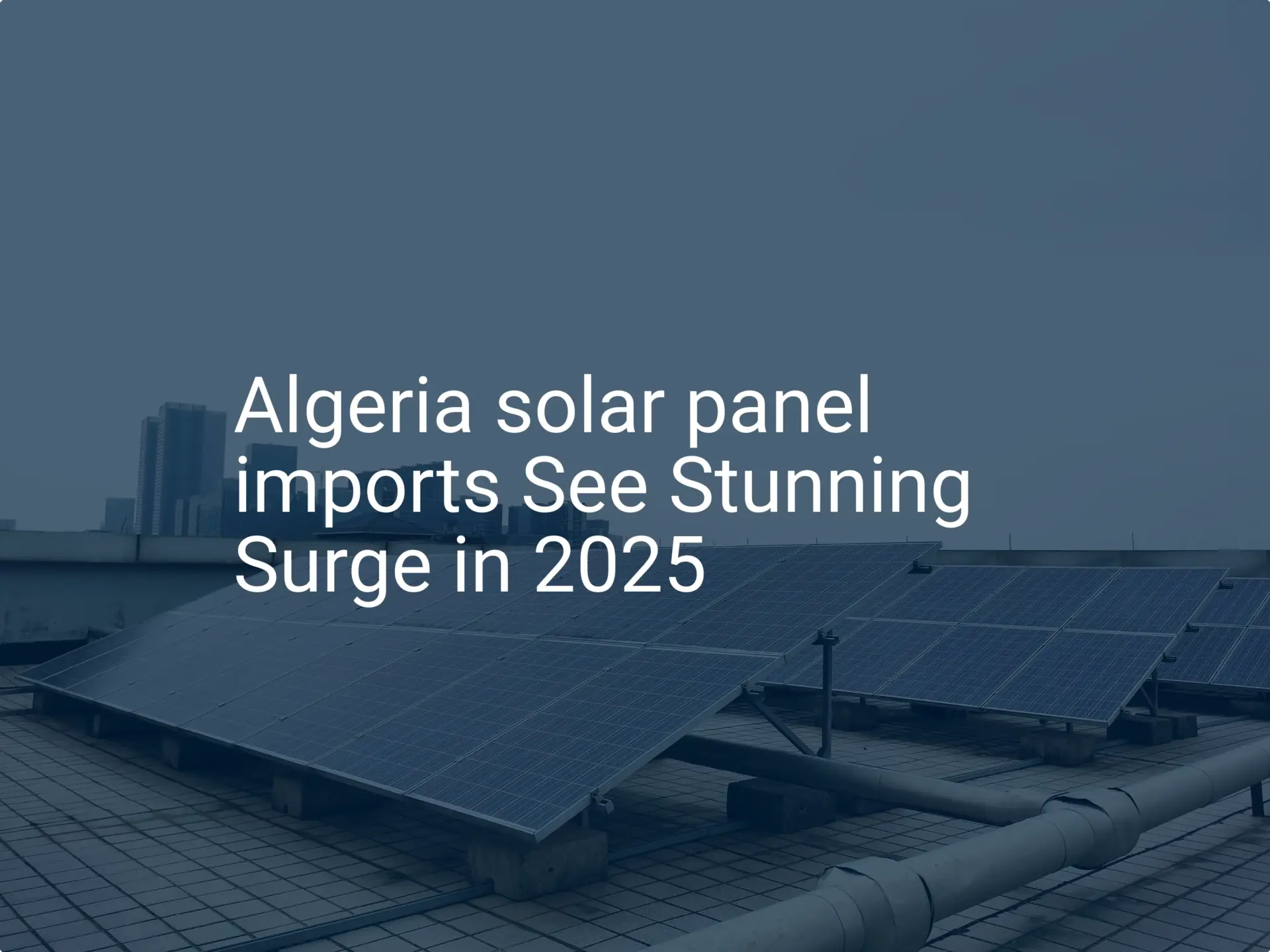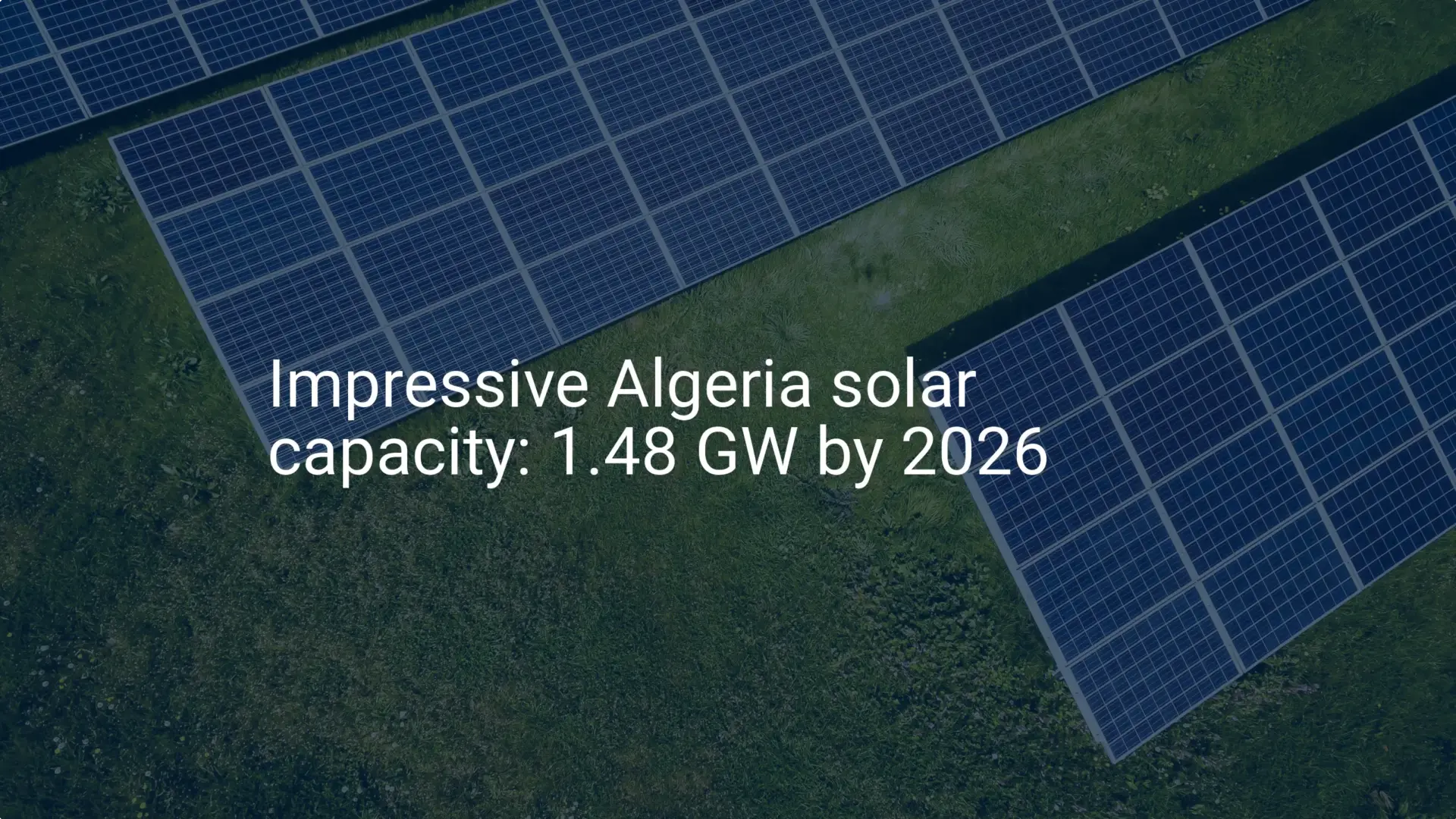With sunshine practically spilling from its skies, Algeria is making impressive strides on its renewable energy journey, with solar power leading the way. This national commitment isn’t just fantastic news for the planet; it’s opening exciting doors for entrepreneurs, established manufacturers, and investors like you who are keen to tap into the rapidly growing solar panel manufacturing sector.
The Algerian government is rolling out the welcome mat, offering a suite of incentives to attract investment, nurture local industry, and position the nation as a key player on the global solar stage. If you’re considering a venture in solar manufacturing, a clear understanding of these financial perks is an essential first step toward a thriving investment.
In this guide, we’ll walk you through the specific government incentives available in Algeria for solar panel manufacturing, to light the way for anyone thinking about setting up production lines. Here at PVknowhow.com, we’ve spent decades (yes, decades!) guiding solar ventures across the globe, and we’re excited to share our insights to help you navigate from initial concept to a successful, operational solar factory.
Table of Contents
Algeria’s National Renewable Energy Vision: Powering a Sustainable Future
Let’s be clear: Algeria isn’t just talking about renewable energy; it’s backing it up with a clear and ambitious national vision. The Renewable Energy and Energy Efficiency Development Plan isn’t just a document; it’s a strategic roadmap. The goal is to install a massive 22 Gigawatts (GW) of renewable energy capacity by 2030, with a hefty 15 GW of that dedicated specifically to solar photovoltaic (PV) energy by 2035. This vision goes far beyond generating clean electricity; it’s about building a robust, self-sustaining local solar industry from the ground up – think skills, jobs, and long-term growth.
Their “Solar Plan” places a strong, and we mean strong, emphasis on developing domestic manufacturing capabilities. In real terms, this means less reliance on imports, more quality jobs for Algerians, and a healthier, more diversified economy.
While Algeria has made commendable progress with over 600 MW of installed renewable capacity, a significant journey lies ahead to reach the 2030 and 2035 targets. This “gap,” as we see it, is precisely where the opportunity shines brightest for investors in solar panel manufacturing. You could be supplying the essential components for Algeria’s green energy revolution. Plus, with a government target of 4 GW of renewable energy capacity slated for 2024/2025, the immediate demand is undeniable.
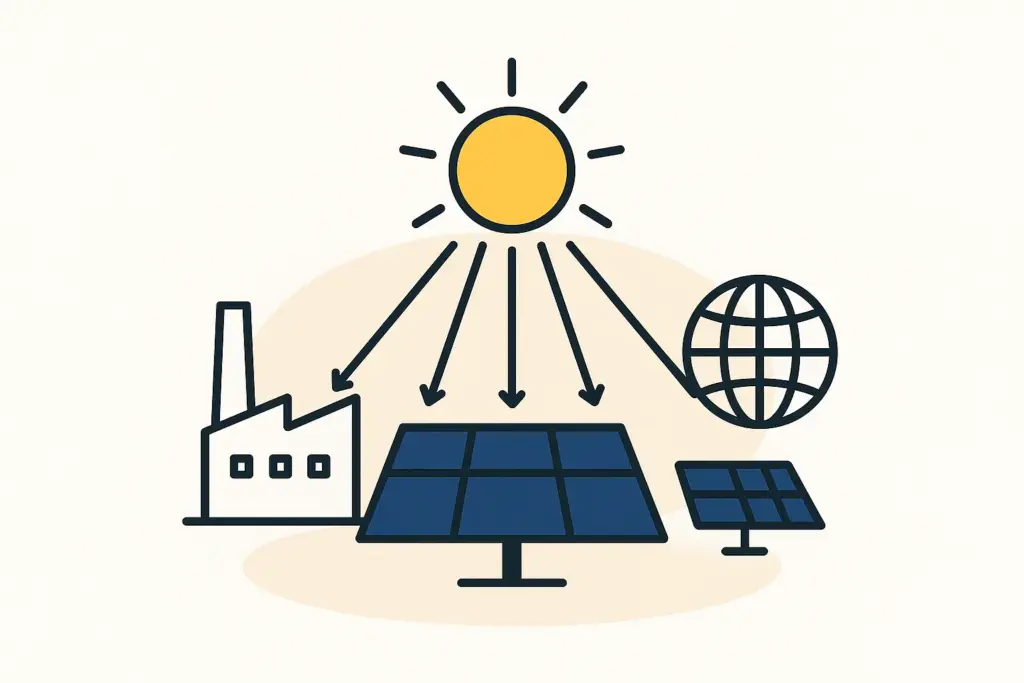
Unlocking Financial Advantages: Core Incentives for Solar Panel Manufacturers
So, how is Algeria fueling this ambitious solar vision? By making investment in the solar panel manufacturing sector highly attractive. The government has crafted a range of financial incentives designed to lower investment risks, reduce hefty initial capital outlays (a common challenge!), and ultimately boost profitability for manufacturers like you.
A. Significant Tax Relief to Get You Started
One of the first things any savvy investor looks for is a solid package of tax breaks, right? Here’s a look at what’s on offer in Algeria for solar manufacturing projects:
- Corporate Income Tax (CIT) Holidays/Reductions: If your solar manufacturing project ticks the right boxes, you could benefit from substantial reductions or even complete exemptions from CIT for a defined period. This often applies during the crucial initial years of operation, giving your early-stage cash flow a welcome boost.
- Value Added Tax (VAT) Exemptions: This is a big one, folks! The import of machinery, equipment, and essential raw materials needed for solar panel production can often be exempt from VAT. This can significantly slash the upfront investment costs when you’re setting up your manufacturing facility – imagine the difference that makes to your bottom line.
- Customs Duty Exemptions: Similar to the VAT benefits, customs duties on imported components, machinery, and manufacturing inputs can often be waived, further helping to reduce your capital expenditure. Every little bit helps, especially at the start.
- Other Potential Tax Relief: Depending on your project’s specifics and its location (some areas might offer more perks!), you might also find additional relief on local taxes, property taxes, or registration fees. As any business owner knows, these savings add up and strengthen the overall financial viability of your venture.
B. Direct Financial Support Mechanisms to Consider
Beyond tax relief, the Algerian government may also offer direct financial support to help get your solar manufacturing project off the ground and running smoothly:
- Direct Subsidies or Grants: While the exact details can vary depending on your project’s scale and impact (bigger impact can mean bigger support!), a framework is in place for potential direct subsidies or grants. These can provide vital, tangible support for establishing new solar manufacturing facilities.
- Grants for Research & Development (R&D): To encourage innovation and the local adaptation of solar technologies (which is critically important for sustainability), you might find incentives available for R&D activities carried out right there in Algeria.
- Support for Job Creation and Training: Projects that make a clear commitment to creating local jobs and investing in training the Algerian workforce in specialized manufacturing skills often receive favorable consideration. This could mean additional support, as it aligns perfectly with national goals.
C. Land and Infrastructure Facilitation for Smooth Operations
The Algerian government understands that the right location and solid infrastructure are key to industrial success. It’s not just about money; it’s about practical support:
- Industrial Zones: Access to well-equipped industrial zones or land at preferential (read: friendly) rates can often be facilitated for solar manufacturing projects. This takes one major hurdle right off your list, which is a huge help.
- Infrastructure Support: Government initiatives frequently include support for developing essential infrastructure like roads and utilities around designated manufacturing hubs. This can significantly reduce logistical headaches and unexpected costs for investors.
Navigating the Investment Landscape: Algeria’s Framework for Solar Manufacturing
Algeria has been working hard to reform its investment framework, with the clear aim of creating a more attractive, predictable, and secure environment for both local and international investors in sectors like solar panel manufacturing. It’s about making things easier and safer for you.
A. Understanding Algeria’s New Investment Law
The recently revamped Investment Law is a cornerstone of Algeria’s strategy to bring in Foreign Direct Investment (FDI). Some key highlights you should know about include:
- Guarantees and Protections for Investors: The law offers robust guarantees and protections. This includes the freedom to transfer capital and profits (subject to regulations, of course) and ensures non-discrimination between foreign and local investors – a level playing field is always good news.
- Streamlined Procedures for Easier Setup: Significant efforts have been poured into simplifying administrative procedures. For you, this means an easier time setting up your business, obtaining permits, and managing overall operations. The goal here is to cut down on frustrating bureaucratic delays.
B. The 51/49 Ownership Rule: What It Means for the Solar Sector
Now, this is a point that often comes up: the long-standing 51/49 ownership rule, which required majority Algerian ownership in local ventures. However, there’s positive news for the renewable energy sector: for projects responding to solar energy tenders and related investments, reports and government signals strongly indicate that this rule may not apply, or its application is becoming much more flexible. This is a deliberate move to encourage foreign expertise and capital, representing a critical and welcome development for international investors considering Algeria’s solar manufacturing space. It shows they’re serious about attracting global players.
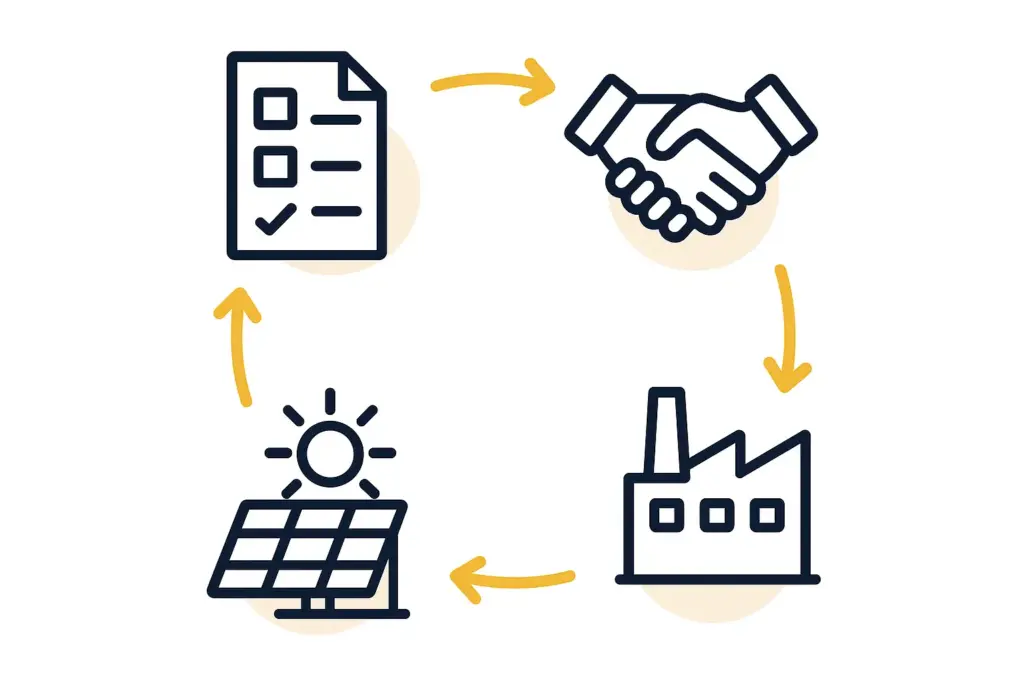
C. Key Regulatory Bodies and Your Approval Pathways
Knowing who to talk to and how the approval process works is vital for any investment – it can save you a lot of time and potential headaches. The key players you’ll want to know include:
- Ministry of Energy Transition and Renewable Energies: This ministry is at the helm of Algeria’s renewable energy policy and strategy, which naturally includes fostering the solar manufacturing sector. They’re shaping the big picture.
- CREG (Commission de Régulation de l’Electricité et du Gaz): CREG is the independent regulatory authority. It oversees the electricity and gas markets, including setting tariffs and ensuring fair competition – all important for the wider energy landscape your business will operate in.
- AAPI (Algerian Investment Promotion Agency): Think of AAPI as your primary support agency for investment. It’s responsible for promoting investment, assisting investors like you, and generally making the investment process smoother. They’re a central point for guidance and practical support.
Our best advice? Engage with these bodies early in your planning stages. Understanding their roles and the approval pathways upfront is essential for a smooth project launch.
Want to learn more or need expert help? Visit our free e-course or explore our services. Or, if you’re ready to dive deeper, our Premium Business Plan E-Course offers personalized guidance to get your venture off the ground. Let’s make your solar journey smooth and successful.
Securing Market Access: PPAs, Tenders, and Demand Drivers for Solar Panels
Attractive incentives are fantastic, no doubt. But the million-dollar question (sometimes literally!) is: will there be a market for your manufactured solar panels? The good news is Algeria is actively fostering demand through several important mechanisms.
A. Power Purchase Agreements (PPAs): A Shifting Landscape
Historically, Algeria used Feed-in Tariffs (FiTs) to encourage renewable energy generation. For solar PV, these tariffs were in the range of approximately 0.0945 USD/kWh to 0.1179 USD/kWh (or 12.75 to 15.94 DZD/kWh), guaranteed for a reassuring 20 years. While FiTs provided important early momentum, Algeria is increasingly moving towards competitive tender-based mechanisms for awarding new renewable energy projects. This is a common evolution in maturing renewable markets.
B. Opportunities through Tender-Based Mechanisms
Large-scale solar projects are now primarily being developed through these competitive tenders. You’ll want to keep a close eye on initiatives like the “Solar 1000 MW” project and subsequent tender rounds (for example, the recent 2 GW tender under the “Tafouk 1” program, which is part of an even larger 3.2 GW initiative). For solar panel manufacturers, these tenders create significant, tangible opportunities:
- Supply Agreements: You can become a key supplier of panels to the project developers who win these tenders. This is your direct route to market.
- Local Content Requirements: This is a big plus! Increasingly, these tenders are including local content requirements. This means they either mandate or strongly incentivize the use of locally manufactured components, which directly benefits domestic solar panel producers – exactly what you could be!
C. Fueling Demand: Domestic Needs and Export Horizons
The main engine driving demand is, quite simply, Algeria’s own ambitious renewable energy targets and its growing electricity consumption. But it’s not just about Algeria’s needs, though those are huge. Beyond domestic demand, Algeria’s strategic location offers exciting potential as an export hub for solar panels. Imagine shipping your high-quality, Algerian-made panels to other African nations and even to Europe – this could significantly expand market opportunities for local manufacturers. Think bigger picture!
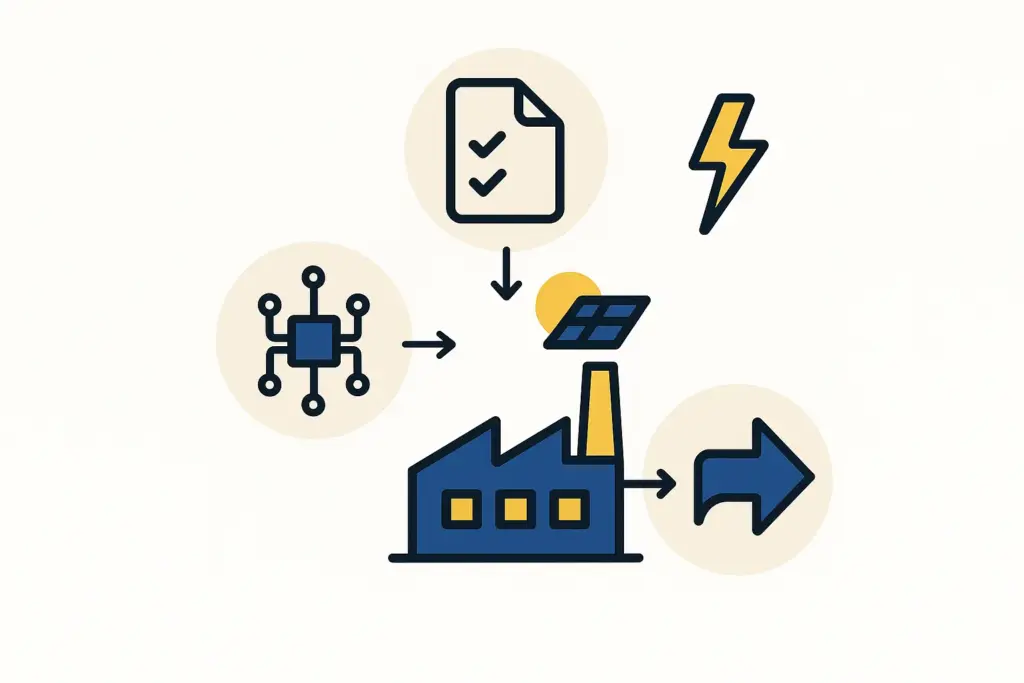
Accessing the Benefits: How to Qualify and Apply for Incentives
So, how do you actually get your hands on these appealing benefits? While specific eligibility criteria can change based on the particular incentive and your project’s scope, some general requirements for solar manufacturing investors usually include:
- A solid, well-thought-out business plan that clearly demonstrates your project’s viability and its contribution to Algeria’s renewable energy goals. They want to see you’ve done your homework.
- A genuine commitment to creating local value, which includes job creation for Algerians and, ideally, technology transfer.
- Full compliance with environmental and technical standards – this is non-negotiable.
- The financial capacity to undertake the proposed investment. You need to show you can deliver.
The application process generally involves submitting a detailed project proposal to the relevant authorities, often starting with AAPI (your friendly support agency, remember?). You’ll typically need to provide documentation like your business registration, technical specifications of your planned manufacturing facility, robust financial projections, and detailed plans for local employment and sourcing. Our pro tip: engaging early with AAPI and the Ministry of Energy Transition and Renewable Energies is highly advisable. They can help you understand the precise requirements and navigate the process much more effectively. Don’t try to guess!
The Algerian Advantage: Why Invest in Solar Manufacturing Now?
Let’s sum it up: why Algeria, and why now for solar panel manufacturing? It boils down to a powerful combination of factors that makes Algeria one of the best business opportunities in 2025 for solar manufacturing investment:
- Exceptional Solar Resources: This is a big one. Algeria is blessed with some of the highest solar irradiation levels in the world, boasting over 3,000 sunshine hours annually in many regions (translating to about 1,850-2,100 kWh/m²/year!). This incredible natural advantage underpins the entire solar value chain. You can’t manufacture sunshine!
- Strong Government Commitment: The Algerian government has shown clear political will and a strategic vision for developing a local solar industry. This isn’t just talk; it’s backed by tangible policies, ambitious targets, and real incentives.
- Strategic Geographical Location: Situated at the crossroads of Africa and Europe, Algeria offers excellent logistical advantages for both sourcing raw materials and exporting finished products. Think efficient supply chains.
- Developing Skilled Workforce: Efforts are actively underway to cultivate a skilled workforce capable of supporting advanced manufacturing operations – a crucial ingredient for long-term success and quality.
- Pipeline of Large-Scale Projects: Ongoing and upcoming major solar projects, like the “Tafouk 1” (a whopping 2 GW) and other initiatives aiming for a cumulative 3.2 GW in the near term, are creating sustained, real demand for solar panels. You’ll have buyers.
Understanding Potential Considerations
Now, we believe in keeping it real. While the opportunities in Algeria are significant and exciting, every smart investor knows it’s good to go in with eyes wide open. Here are a few things to bear in mind when considering investing in Algerian solar manufacturing:
- Administrative Processes: Although the new investment law is specifically designed to simplify procedures (and it’s a big step forward!), navigating administrative and bureaucratic processes can still require patience and, ideally, local expertise or guidance.
- Logistics and Supply Chain Development: Establishing efficient logistics and robust supply chains, for both incoming raw materials and outgoing finished goods, will be crucial for staying competitive and profitable.
- Policy Stability: Ensuring long-term policy stability and consistent government commitment is vital for investor confidence. The current reforms and clear targets are very positive indicators in this regard, but it’s always something to monitor in any emerging market.
Conclusion: Partner with Algeria for a Bright Solar Manufacturing Venture
So, what’s the bottom line? Algeria is laying a strong and inviting foundation for a vibrant domestic solar panel manufacturing industry. The powerful mix of ambitious renewable energy targets, attractive government incentives, a new pro-investment legal framework, and abundant natural resources builds a compelling case for investment. For entrepreneurs and companies looking to enter or expand into the solar manufacturing space, Algeria offers a unique opportunity to contribute to a sustainable future while building a profitable and rewarding enterprise.
Embarking on a solar manufacturing venture, from the first spark of an idea to a successful factory humming along, is quite a journey, isn’t it? It’s filled with technical details, meticulous financial planning, and critical strategic decisions. That’s where we at PVknowhow.com come in. With more than two decades of experience helping set up solar module production lines worldwide, we offer complete, hands-on support – from providing turnkey equipment and crafting solid, bankable business plans to offering expert technical advice that only comes from experience. We’re not just consultants; we’re partners who’ve been in the trenches, and we’re here to guide you at every single stage.
Feeling inspired by Algeria’s solar potential? Let’s explore how government incentives can power up your solar panel manufacturing ambitions. With decades of global experience, PVknowhow.com is ready to guide your venture from initial concept to a thriving factory in Algeria. Connect with us at PVknowhow.com today – let’s bring your bright solar idea to life!
Frequently Asked Questions (FAQs)
Q1: What kind of tax breaks can solar manufacturers in Algeria really expect?
A: You can look forward to significant tax breaks. Key among them are potential Corporate Income Tax (CIT) holidays or reductions (especially helpful in the early years!), Value Added Tax (VAT) exemptions on imported machinery and raw materials (a big cost saver upfront!), and customs duty exemptions on essential manufacturing inputs. These are designed to make a real difference to your setup costs and early profitability.
Q2: Is the 51/49 ownership rule still a major hurdle for foreign investors in Algeria’s solar manufacturing sector?
A: There’s positive movement here. For the renewable energy sector, especially concerning solar tenders and related manufacturing investments, indications suggest the 51/49 rule may not apply or is being applied with much greater flexibility. This deliberate shift aims to attract foreign investment and expertise. However, it’s always wise to seek the latest official clarification for your specific project.
Q3: How is Algeria making sure there’s actual demand for locally manufactured solar panels?
A: Great question! Demand is being actively driven by Algeria’s ambitious national renewable energy targets (aiming for 15 GW of solar by 2035!), large-scale government-backed solar projects awarded through competitive tenders, and an increasing, welcome focus on including “local content requirements” in these big projects. This means developers are incentivized or required to use Algerian-made parts.
Q4: What are Algeria’s long-term solar energy targets, in a nutshell?
A: Algeria has its sights set impressively high: it aims to install 15 GW of solar PV capacity by 2035. This is a core part of a broader national goal to achieve 22 GW of total renewable energy by 2030. That’s a lot of solar panels!
Q5: Where’s the best place to get the most up-to-date, official info on Algeria’s investment laws and specific incentives for solar manufacturing?
A: Your first official port of call should always be the Algerian Investment Promotion Agency (AAPI). They are there to help investors. Also, keep an eye on announcements from the Ministry of Energy Transition and Renewable Energies and official government publications for any new laws or decrees. Of course, for a chat that gets into the nitty-gritty of how this all applies to your specific plans, connecting with experienced folks like us at PVknowhow.com can help you get a clear, current, and practical picture. We live and breathe this stuff!

